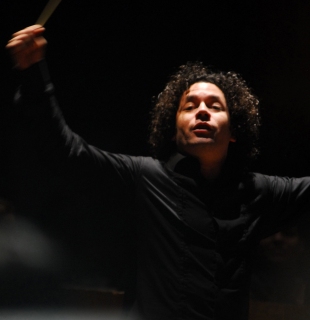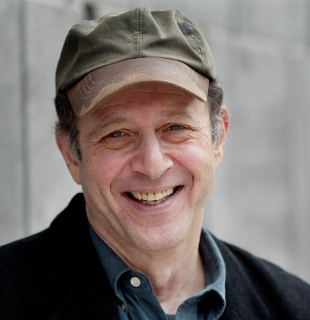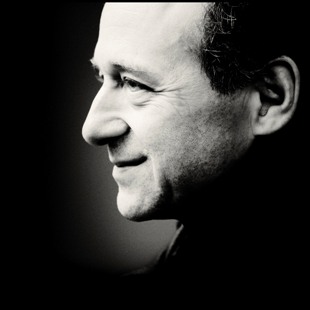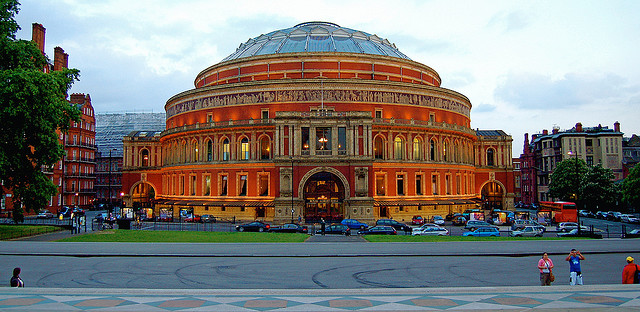There are roughly 5000 tickets, seating and standing, available at each BBC Prom at the Royal Albert Hall. There are 74 concerts at the venue this summer, meaning there are potentially 370,000 places to fill (not including concerts elsewhere). That the Proms weren’t far off that figure last year shows just how this 166-year-old festival transcends the classical music world, or indeed any music scene.
Londoners and tourists go the Proms who wouldn’t usually give classical music a try. This is partly due to the festival’s status as a firm fixture on the summer cultural circuit, but it’s also because prices remain stubbornly low. Promming, or standing, tickets are just £5.
Despite its success, to some the Proms still gives off a crusty Edwardian air, with the jingoism of the last night celebrations and the solidly middle-England demographic. But Roger Wright, the affable director of the Proms, is always keen to counter that interpretation of the festival.
By focusing relentlessly on quality and by widening the range of events, Wright is again asking new punters to roll up in 2011. It wasn’t easy but here are 10 suggestions for Proms virgins:
Saturday 23 July, 7.30pm (or Sunday 24 July, 11am): Human Planet
World music star Nitin Sawhney composed the music for the BBC’s Human Planet series. This multimedia event combines that music with big-screen projections, narration, the BBC Concert Orchestra and traditional musicians from around the world. It should be stirring stuff.
Sunday 31 July, 7pm: Rachmaninov
Most people know Rachmaninov’s famous piano concertos (Brief Encounter anyone?) but there is a huge amount more that deserves hearing from this Romantic Russian composer. This concert, by the BBC Philharmonic and the Chorus of the Mariinsky Theatre from St Petersburg, culminates in choral symphony The Bells.
 Tuesday 2 August, 10.15pm: Folk
Tuesday 2 August, 10.15pm: Folk
Late-night Proms are where some of the most exciting music happens and there’s a suitably relaxed feel to them. For this Prom, folk musician Kathryn Tickell and her band combine with the Northern Sinfonia to perform music by Australian folk-inspired composer Percy Grainger alongside traditional music.
Friday 5 August, 7.30pm: the Venezuelans
Gustavo Dudamel (right) and the Simón Bolívar Symphony Orchestra are the big success story of classical music in the last decade. Both are the product of El Sistema, a Venezuelan music education programme that has been unbelievably successful. With the stage crammed full of exuberant, talented young musicians, the Daily Telegraph asked “Was this the greatest Prom of all time?” when they last came in 2007 (click here to watch – from 3 minutes in). This time Dudamel conducts some serious music in the form of Mahler Symphony No.2 in C minor, subtitled ‘Resurrection’.
Saturday 6 August, 6.30pm: British youth
Nineteen-year-old pianist Benjamin Grosvenor, the National Youth Orchestra and a piece by young British composer Gabriel Prokofiev (whose club nights have been featured in Londonist): this Prom is about outstanding young talent. Young Grosvenor performs Britten’s Piano Concerto, Gabriel Prokofiev’s Concerto for Turntables and Orchestra is given its Proms debut and the NYO completes the gig with the popular suite from Romeo & Juliet by Gabriel’s grandfather, Sergei Prokofiev.
 Wednesday 10 August, 10.15pm: Steve Reich
Wednesday 10 August, 10.15pm: Steve Reich
The Royal Albert Hall’s boomy acoustic is not much to write home about but it should be perfect for Steve Reich’s rhythmically complex, trance-like music. The legendary American minimalist composer Reich (pictured) is now an elder statesman of classical music and this will be his first Proms appearance since 2004. He leads a programme that includes the seminal work Music for 18 Musicians.
Saturday 13 August, 7.30pm: Comedy
Comedians of old, from Victor Borge to Dudley Moore, have drawn heavily from classical music for their material. Tim Minchin is one of today’s funny men to have continued that tradition. The polymath superstar is joined by the BBC Concert Orchestra and special guests for a gig that should have its tongue firmly in cheek.
Monday 29 August, 7.30pm: Musicals
Conductor John Wilson and his orchestra have carved a niche for themselves as red-hot exponents of music from musical theatre. In what is always an extremely popular night, Wilson leads his band and a crew of vocal stars through a high octane set. This year it’s movie musical history under the banner “Hooray for Hollywood”.
 Friday 2 September, 10pm: Jukebox
Friday 2 September, 10pm: Jukebox
After a concert of Liszt and Mahler, the brilliant Budapest Festival Orchestra performs a Proms first, a gig where the audience will choose the pieces to be played from a long list of options. Used to performing many encores under charismatic founder and conductor Iván Fischer (pictured), the format should suit the flexible Hungarians down to the ground.
Thursday 8 September, 7.30pm: America
Since times got hard financially, American orchestras have become a rare sight at the Proms (touring across the Atlantic is very expensive). Two of them have made it this year, and the Philadelphia Orchestra, one of the “big five” US orchestras, is still a major force despite its problems. For their Prom, the Philadelphians, under conductor Charles Dutoit, perform four popular Romantic pieces including Ravel’s sumptuous La Valse and the Tchaikovsky Violin concerto with glamorous Dutch violinist Janine Jansen.
A final top tip: if you’re promming (queuing up on the day for standing tickets), choose the gallery and not the hot-and-stuffy arena. It may be at the top of the hall but the view’s great, the music floats up beautifully and there’s lots of space to spread out.





